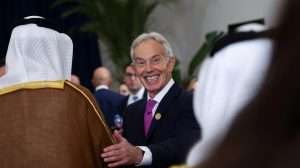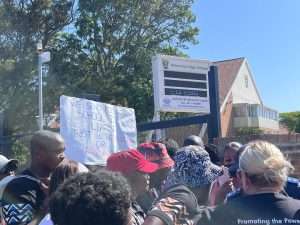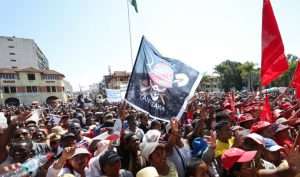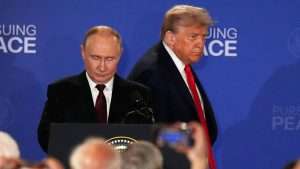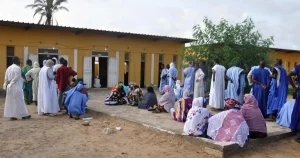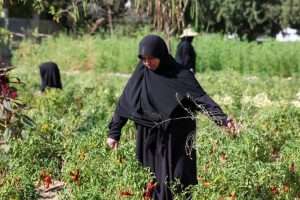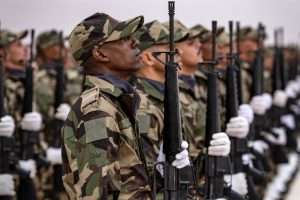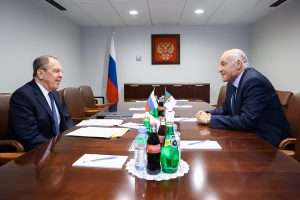What the Palestine Action ban tells us about western freedom
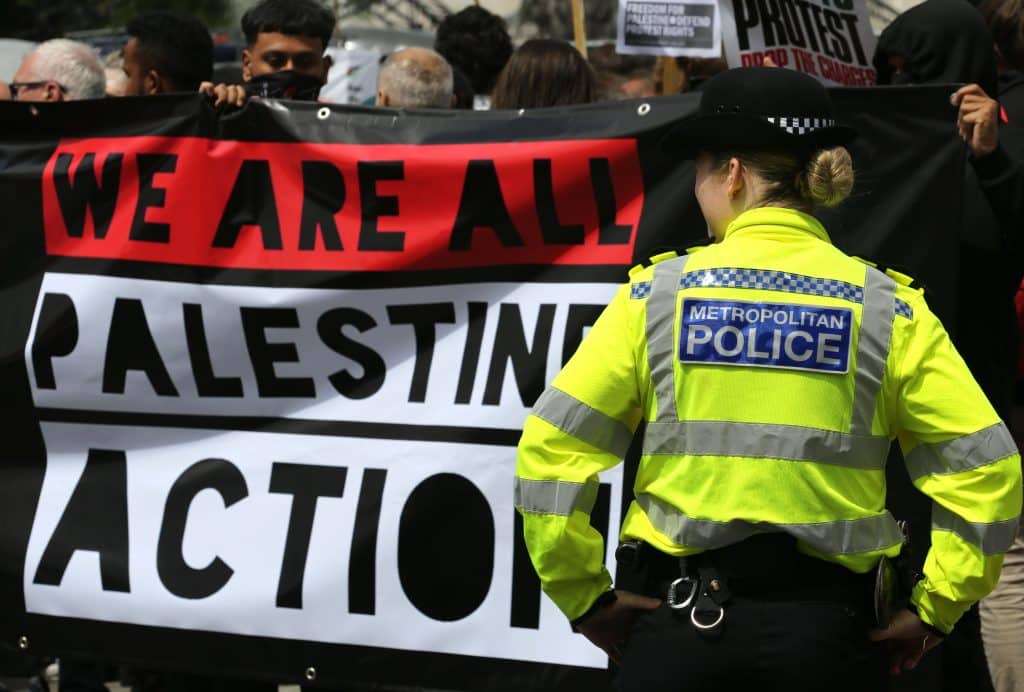
The UK government’s decision to ban Palestine Action as a terrorist organisation marks more than just an escalation in the policing of protest, it signals the erosion of a fundamental democratic principle: the right to dissent.
In an age where social media exposes both state violence abroad and repression at home in real time, what does this crackdown say about the true state of free speech in Britain? And to what extent can Western democracies still claim to embody these freedoms when protest against genocide is met not with debate, but with handcuffs and court orders?
On July 12th, British police arrested 86 people who were demonstrating against the ban on the pro-Palestine group, Palestine Action, according to Middle East Eye via Reuters. On a broader scale, democracy in the West no longer looks like the ideal it claims to represent. In the UK, the US, and much of Europe, the foundations of these systems are visibly creaking under the weight of their own contradictions. Governments that once celebrated themselves as champions of free speech and human rights now actively criminalise protest when it threatens their political interests. These are not systems honed to serve the needs of their societies, but institutions increasingly preoccupied with their own survival.
The crisis in Gaza has made this reality impossible to ignore. While previous conflicts – Iraq, Afghanistan, Vietnam – revealed similar hypocrisies, none have unfolded so viscerally under the relentless spotlight of social media. Today, state violence and complicity circulate in real time, stripped of official spin. Citizens across the world can see the brutality in Gaza alongside the suppression of protest on their own streets. They can see the corporations that profit, the politicians who evade accountability, and governance who protect property over people.
This is the cost of silence: a political order that punishes those who speak out and rewards those who maintain the status quo. The messiness of this hypocrisy is not a flaw in the system – it is the system. A state of existence where government, corporations, and business operate in opposition to the moral will of the people. A world unbalanced by apathy and driven further into disrepair by suppression. Never before has this dysfunction been so visible, so undeniable, and so widely documented as it is now in the era of social media.
The cracks
Western governments continue to preach the virtues of free speech and human rights abroad, yet their actions at home betray these very principles. The Gaza crisis has stripped away the pretence. When protesting against a genocide leads to criminalisation, no government can credibly claim to uphold free speech.
The UK government has labelled Palestine Action a terrorist group, using terrorism legislation to outlaw a protest movement whose central aim involves disrupting companies supplying arms to Israel. By redefining targeted activism as terrorism, the government has revealed how fragile the supposed right to protest has become.
British MPs have overwhelmingly approved new legislation that formally designates Palestine Action as a terrorist organisation, with 385 voting in favour and just 26 against.
This classification places the activist group alongside organisations such as the Islamic State and al-Qaeda, making any form of support for it a criminal offence. Under the new law, individuals found guilty of involvement with Palestine Action, whether through membership, public endorsement, or assistance, could face prison sentences of up to 14 years. The law is expected to come into force within days.
Critics, including civil liberties groups and human rights campaigners, have condemned the government’s decision, warning that it sets a dangerous precedent by criminalising political activism and dissent against Britain’s role in enabling Israel’s assault on Gaza.
Palestine Action is known for its use of disruptive tactics aimed at companies involved in the arms trade, particularly those supplying military equipment to Israel. The UK, for example, has continued to send arms to Israel despite a ban.
Police forces arrested over 70 people for participating in protests against the ban on Palestine Action. These arrests demonstrate a clear message: when protest challenges state complicity in atrocities, the right to assemble disappears. The law now punishes those who speak out in the “free world.” Only the gullible believed their world was truly “free.”
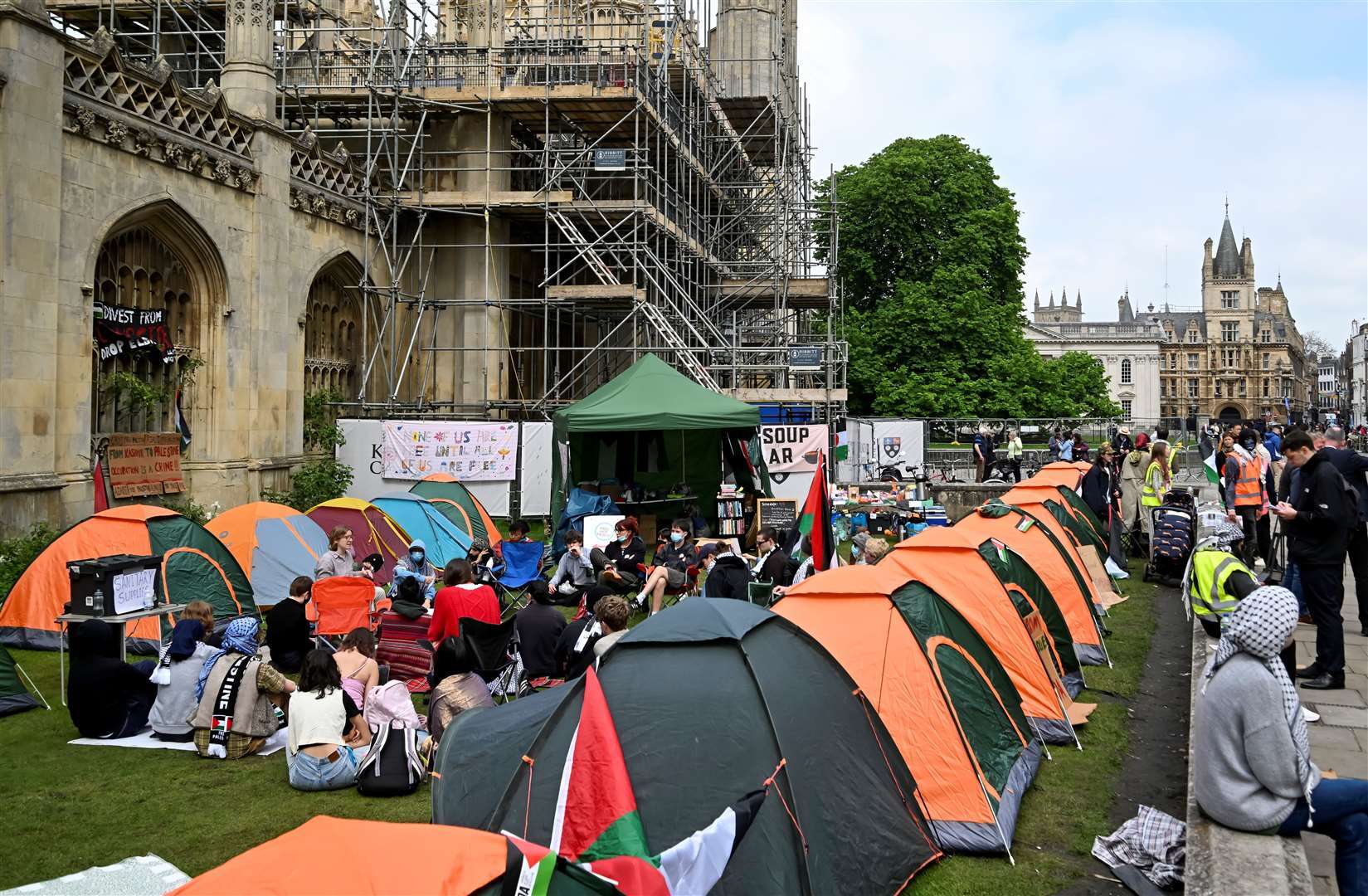
Likewise, students at Cambridge who staged encampments in solidarity with Palestine face legal injunctions designed to criminalise their protest. The University of Cambridge sought court orders to remove the camps and prevent further demonstrations, effectively banning students from expressing solidarity in their own campus. Even spaces traditionally viewed as bastions of free expression now serve to monitor dissent.
Police investigated artists at Glastonbury for voicing pro-Palestinian statements during performances. Officers treated on-stage political speech as a matter for law enforcement, opening formal probes into public comments made by musicians. UK Prime Minister Keir Starmer called it “appalling hate speech,” and said the BBC, the shows broadcaster, should explain “how these scenes came to be broadcast.” In response, the BBC expressed regret for having not pulled the show off the air. These actions prove that free speech exists only when it aligns with state interests.
A society cannot claim to defend free speech while silencing those who protest against genocide. The Gaza crisis has exposed this hypocrisy in full view.
“peace will come when you will love your children more than you hate us”
Censorship and threats
Governments no longer rely solely on police and legal measures to suppress dissent; they increasingly turn to intimidation, censorship, and the manipulation of public perception to maintain control. Gaza has accelerated this shift. Those who speak out against state complicity in the the Gaza conflict face not only arrest but also reputational smears, professional punishment, and threats to their personal freedom. This strategy reinforces a culture of fear designed to deter others from joining the conversation.
In the United States, pro-Palestinian protest leaders face threats of deportation for their activism. One prominent organiser, Mahmoud Khalil, declared he would remain defiant despite the legal intimidation he now confronts.
Students also feel the pressure. International students have begun to reconsider enrolling at American universities due to the increased surveillance and suspicion surrounding political activism. The threat of deportation turns protest into a high-stakes gamble. The Arab Weekly Plus agencies reported on how visa crackdowns discourage young people from engaging in protests. The threat extends beyond arrests; it shapes careers, education, and immigration status.
The music industry, too, faces tightening restrictions. Following controversy over pro-Palestinian statements by Bob Vylan, the music sector has encountered growing censorship pressures. Industry figures now weigh political expression against potential professional consequences, revealing a broader climate of enforced silence.
States no longer just criminalise protest; they intimidate individuals into silence through fear of personal, professional, and legal retribution. This strategy erodes the possibility of honest public discourse and deepens the divide between the state and its people.
The role of social media
The Gaza crisis has shattered the illusion that states can control narratives through traditional media alone. Social media has transformed how the public witnesses and responds to injustice. In previous conflicts, governments managed to obscure or sanitise their complicity through carefully curated press coverage and official statements. Today, real-time footage of destruction, testimonies from survivors, and the raw brutality of state violence circulate unfiltered, forcing these uncomfortable truths to enter public consciousness.
Social media has eliminated the state’s monopoly on information. The emotional breakdown of Palestine’s UN envoy, Riyad Mansour, as he pleaded with the Security Council over Gaza, spread globally without editorial framing. His words resonated across platforms and gathered widespread sympathy. He said, there were “double standards” in the global response, and humanitarian aid “must never be politicised or militarised.” Mansour continued, “peace will come when you will love your children more than you hate us”. Such moments expose audiences directly to the human cost of state policy.
Attempts to silence activism at home have only heightened the visibility of these issues abroad. In France, where authorities continue to crack down on pro-Palestinian demonstrations, solidarity movements have grown louder rather than quieter. The New Arab reported how, despite increased restrictions, voices of support for Palestine persist with determination. Every ban or arrest becomes content for activists to circulate, amplifying the state’s own repression.
Online platforms expose not only the atrocities in Gaza but the hypocrisy of the governments attempting to silence their citizens. Performers, students, and activists turn to these spaces to document their treatment, drawing international attention and support. In this digital landscape, censorship cannot erase evidence.
The public now witnesses, in real time, both the violence abroad and the authoritarian actions at home. Governments can no longer rely on plausible deniability.
How do things stand?
The Gaza crisis has revealed a fundamental divide between states clinging to their own power and those attempting to uphold principles of justice on the world stage. Western democracies, particularly the UK, France, and the United States, present themselves as defenders of freedom and human rights, yet their responses to Gaza expose a deeper truth: these states will sacrifice those ideals to preserve their political interests.
In Britain, France, and the US, governments have prioritised silencing their own citizens over addressing the ongoing atrocities in Gaza. These states have chosen suppression at home while offering political cover to Israel abroad. Their actions suggest not only hypocrisy but a system fundamentally unsuited to a world where transparency and accountability are unavoidable. These governments now operate in direct contradiction to the values they claim to defend. Protesters face arrests and students face legal threats not for breaking laws, but for challenging state complicity in mass violence.
On the contrary, over 20 nations are preparing to meet and coordinate action against Israel. These countries, including western democracies like Spain and Ireland, are attempting to forge a path towards accountability and justice, even as other Western powers block or veto meaningful resolutions. These states acknowledge the situation in Gaza as a human rights catastrophe and seek to act within the frameworks of international law. All the while, labelling Israeli actions as “violations of international law.”
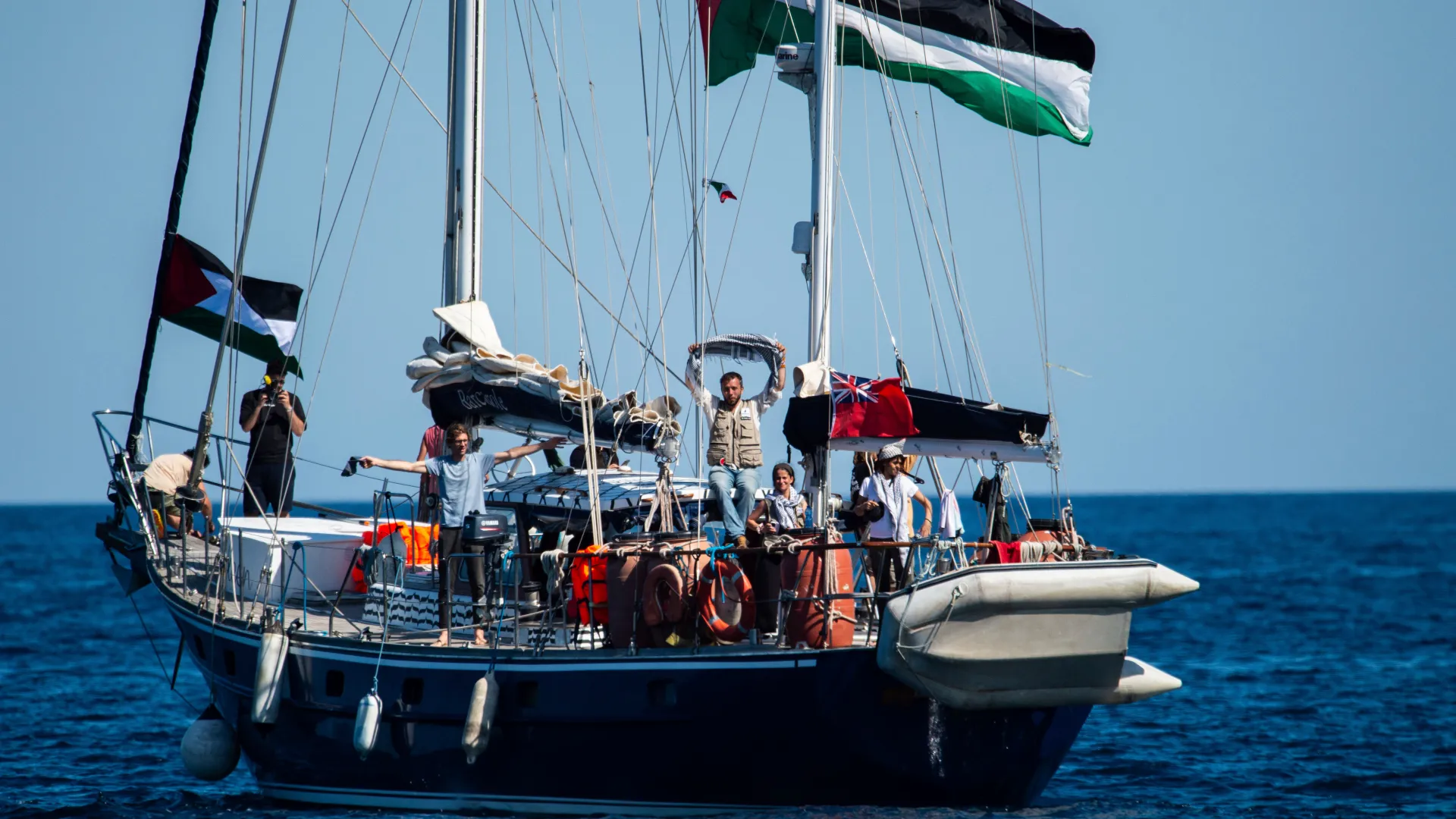
While the UK, France, and the US turn inward, using legal threats to stifle protest, other nations confront the crisis directly. The failure of these Western democracies to protect free speech and uphold international law signals a system in decline, one incapable of responding to the demands of an increasingly connected and conscious world. This growing divide embodies a world where Western claims of democratic virtue no longer hold weight. Activists have even gone as far as sailing to Gaza themselves, only to be stopped.
This political order is fundamentally at odds with the demands of a connected, informed, and morally conscious public. The incentives of these states cannot align with the global call for justice because their primary interest remains survival, not principle. The Gaza crisis has exposed not only the brutality of modern warfare but the hollowness at the heart of Western democracy.
The UK, the US, and France no longer protect free speech when that speech challenges power or key allies. Instead, these countries criminalise, intimidate, and censor. These are not the actions of confident, functioning democracies. They are the actions of outdated systems designed to preserve continuity.
The cost of this silence is clear: a future where democracy fractures further, trust erodes at a deeper level and the will of the people becomes ever more impossible to ignore.
Maghrebi.org, Middle East Eye, Reuters, Sky News, Al Jazeera, BBC, Al-Monitor, The Arab Weekly plus agencies, DW, The National News, The New Arab, The Guardian
Want to chase the pulse of North Africa?
Subscribe to receive our FREE weekly PDF magazine





